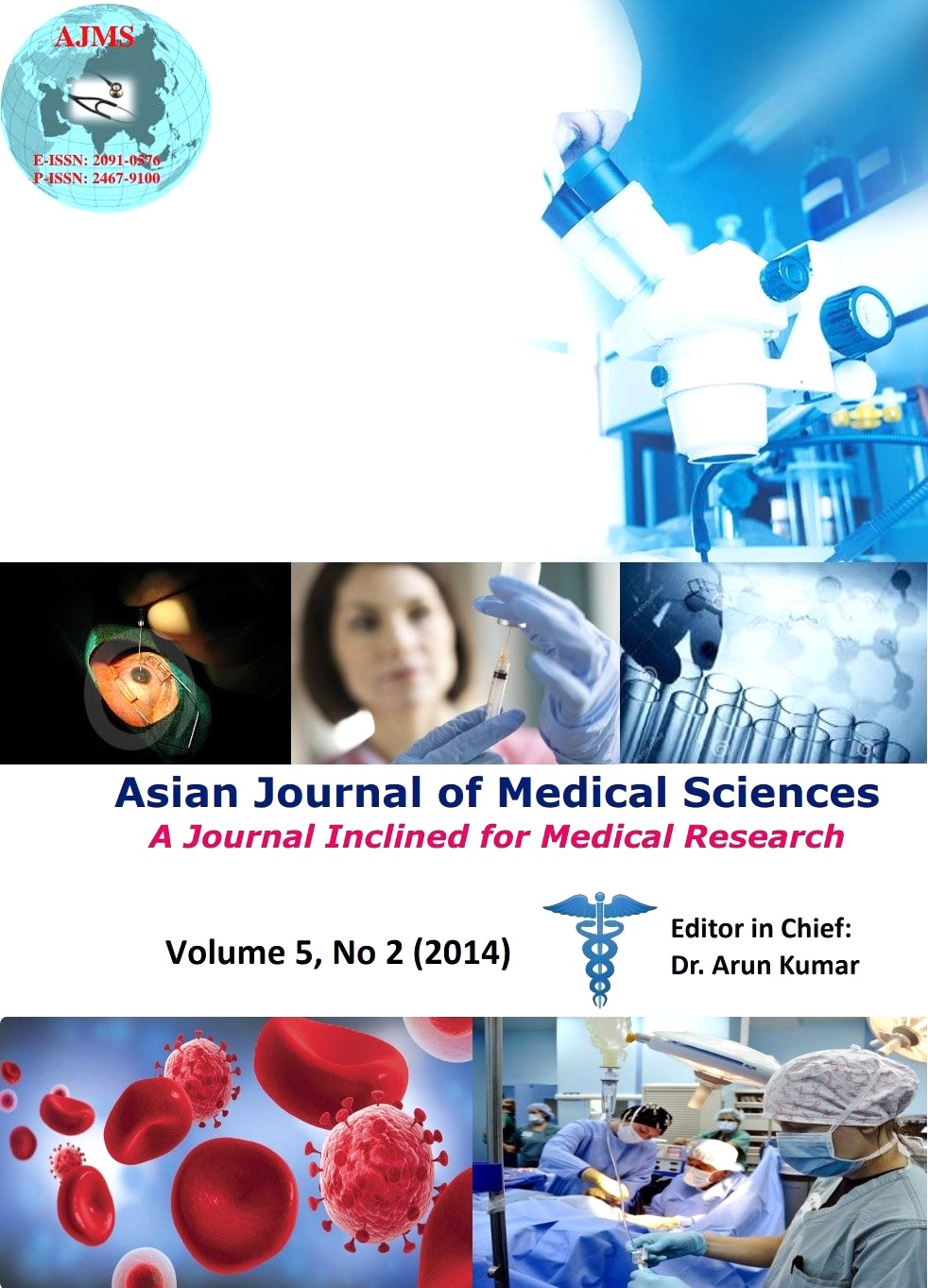Vitamin E Supplementation and Markers of Oxidative Stress in Indian Acute Myocardial Infarction Patients
Keywords:
Oxidative stress, Glutathione peroxidase, uric acid, malionaldehydeAbstract
Background: Reactive oxygen species have been identified as mediators of cell injury in a variety of cardiovascular complications including Myocardial Infarction (MI). It is conceivable that vitamin E supplementation can be used therapeutically due to its role in ameliorating antioxidant status and free radicals scavenging activity.
Aim: Therefore, the present study was undertaken to assess the markers of oxidative stress i.e. erythrocyte glutathione peroxidase (GSHPx) & malondialdehyde (MDA); plasma vitamin C, E, A and uric acid level in the blood samples of MI patients and to investigate the effect of in-vitro vitamin E supplementation in ameliorating the levels of these antioxidants in the blood sample of MI patients.
Material & Method: 60 MI subjects (age group 30-60 years) were taken for the study and 60 healthy individuals served as controls. In-vitro vitamin E supplementation in the blood samples of MI subjects were performed and above mentioned parameters were estimated by using standard methods. Data was compared statistically by using student t-test.
Result: Vitamin E supplementation brought about an improved antioxidants status with significantly raised vitamin C, E, A and GSHPx levels (p<0.05, p<0.001), and simultaneously depleted level of erythrocyte MDA (p<0.001) in blood samples of MI subjects. However, plasma uric acid levels remain unaltered (p<0.1).
Conclusion: These findings further support the preventive and cardio protective role of vitamin E supplementation in reducing oxidative stress levels in the blood samples of MI patients.
DOI: http://dx.doi.org/10.3126/ajms.v5i2.8430
Asian Journal of Medical Science, Volume-5(2) 2014: 46-53
Downloads
Downloads
Published
How to Cite
Issue
Section
License
Authors who publish with this journal agree to the following terms:
- The journal holds copyright and publishes the work under a Creative Commons CC-BY-NC license that permits use, distribution and reprduction in any medium, provided the original work is properly cited and is not used for commercial purposes. The journal should be recognised as the original publisher of this work.
- Authors are able to enter into separate, additional contractual arrangements for the non-exclusive distribution of the journal's published version of the work (e.g., post it to an institutional repository or publish it in a book), with an acknowledgement of its initial publication in this journal.
- Authors are permitted and encouraged to post their work online (e.g., in institutional repositories or on their website) prior to and during the submission process, as it can lead to productive exchanges, as well as earlier and greater citation of published work (See The Effect of Open Access).




